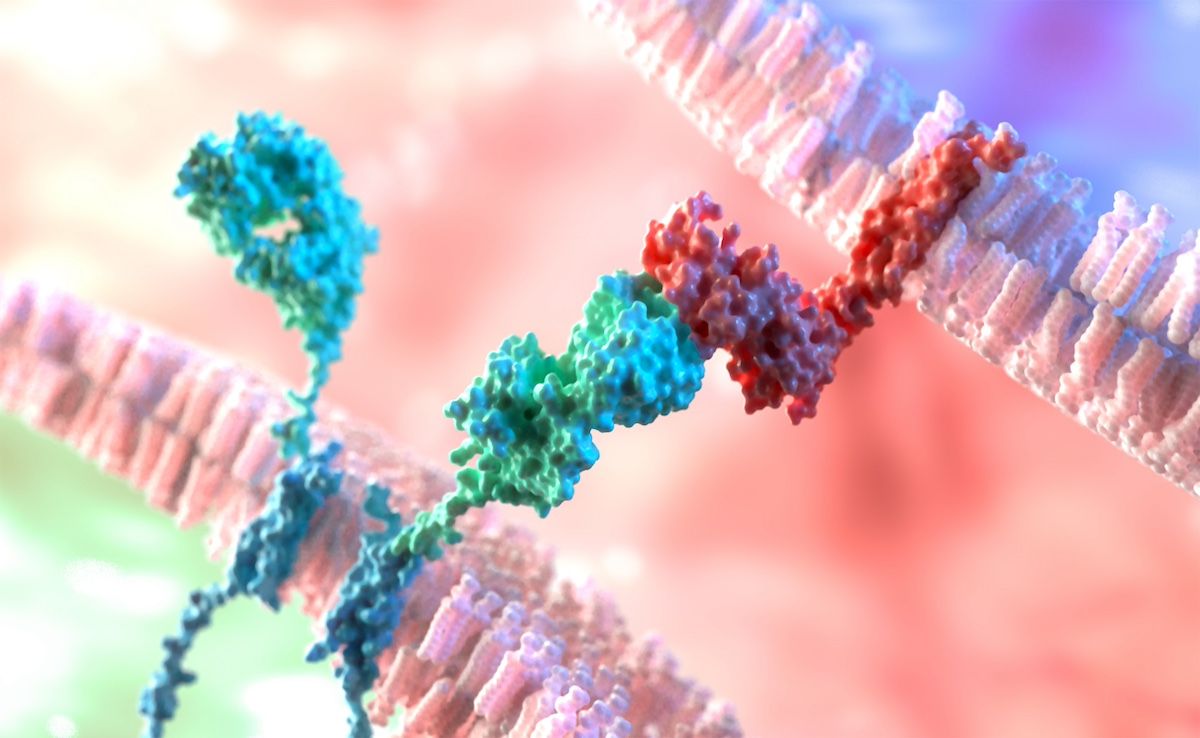- Center on Health Equity & Access
- Clinical
- Health Care Cost
- Health Care Delivery
- Insurance
- Policy
- Technology
- Value-Based Care
Novel CAR-E Platform Enhances CAR T-Cell Functionality in Cancer Treatment
Researchers introduce a chimeric antigen receptor–enhancer (CAR-E) therapeutic platform that significantly extends the effectiveness and memory of CAR T cells, potentially preventing relapse in patients who have cancer.
Researchers at Dana-Farber Cancer Institute have unveiled a new technique to address a significant limitation of chimeric antigen receptor (CAR) T-cell therapy: the high rate of relapse in patients whose cancer initially goes into remission. Detailed in a recent paper published in Nature Biotechnology, this approach aims to extend the persistence and effectiveness of CAR T cells in the body to help address this challenge.1,2
CAR T-cell therapy, which involves modifying a patient's T cells to produce CARs that target and destroy cancer cells, has shown to be a promising treatment for certain cancers. Despite initial success, however, many patients experience relapse within 1 to 2 years.
"In myeloma, for example, virtually 100% of patients have an excellent response to CAR T-cell therapies initially, but almost all relapse, half of them within 1 to 2 years of treatment. Relapse coincides with the disappearance of CAR T cells in the bloodstream," said Mohammad Rashidian, PhD, the study's senior author, in a statement.2
"The most exciting part of this therapy is how easily it can be integrated into the care of patients receiving CAR T-cell therapies," says the study's first author, Taha Rakshandehroo, PhD, Dana-Farber. | Image Credit: Alpha Tauri 3D-stock.adobe.com

To tackle this challenge, the researchers developed an antigen-based CAR-enhancer (CAR-E) therapeutic platform. Instead of modifying the CAR T cells themselves, CAR-E works externally by delivering a molecule that extends the life and memory of CAR T cells. This platform involves a novel fusion of a weakened form of interleukin-2 (IL-2) with the antigen that the CAR is designed to target, specifically the B-cell maturation antigen (BCMA) in multiple myeloma.2 Although IL-2 strongly affects T cells by activating them and causing them to proliferate, it can also be highly toxic to patients. Because of this, a very weak form of IL-2 was used in the CAR-E platform.
The results from laboratory experiments and animal models have shown that CAR-E therapy not only boosts the proliferation of CAR T cells but also enhances their diversity.
"It generated not only effector T cells, which most patients already have, but also stem cell–like memory T cells, central memory T cells, effector memory T cells—a complete repertoire of the kinds of T cells needed for an effective immune response to cancer," explained Rashidian.
The benefits of CAR-E therapy extend beyond just enhancing the initial attack on cancer cells. The long-lasting CAR T cells created by this therapy can be restimulated with additional doses of CAR-E, suggesting that patients who relapse could be treated effectively without needing a new batch of CAR T cells. This approach could also allow for the use of smaller numbers of CAR T cells, reducing the time, cost, and potential adverse effects associated with their expansion.
The next goal includes clinical trials to ensure safety and determine CAR-E therapy's optimal dosing and administration schedule. The researchers expect treatment would start about a month after CAR T-cell infusion, with weekly doses of CAR-E for 3 to 4 weeks.
First author Taha Rakshandehroo, PhD, added, "The most exciting part of this therapy is how easily it can be integrated into the care of patients receiving CAR T-cell therapies. It's such an elegant solution to the problem of CAR T-cell depletion. We're eager to begin testing it in clinical trials."
References
1. Rakhshandehroo T, Mantri SR, Moravej H, et al. A CAR enhancer increases the activity and persistence of CAR T cells. Nat Biotechnol. Published online July 30, 2024. doi:10.1038/s41587-024-02339-4
2. Researchers devise novel solution to preventing relapse after CAR T-cell therapy. News release. Dana-Farber Cancer Institute. July 30, 2024. August 6, 2024. https://www.dana-farber.org/newsroom/news-releases/2024/researchers-devise-novel-solution-to-preventing-relapse-after-car-t-cell-therapy#:~:text=Researchers%20discovered%20that%20the%20long,doses%20of%20CAR%2DE%20treatment
Empowering Children and Parents Through Technology: Opportunities, Challenges, and Future Directions
January 15th 2026Digital health platforms improve pediatric care by offering customized, interactive tools for children and parents. They enhance education, support, and engagement while tackling challenges related to access, usability, and privacy.
Read More
